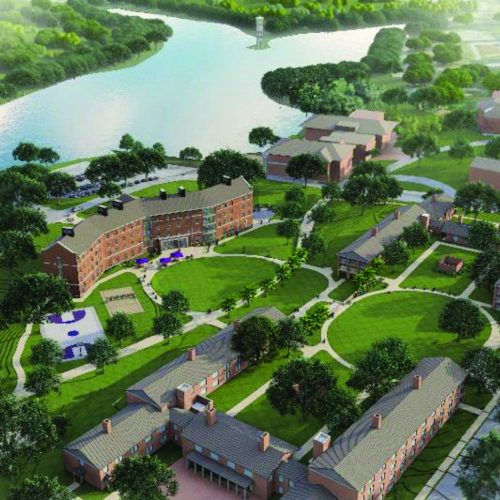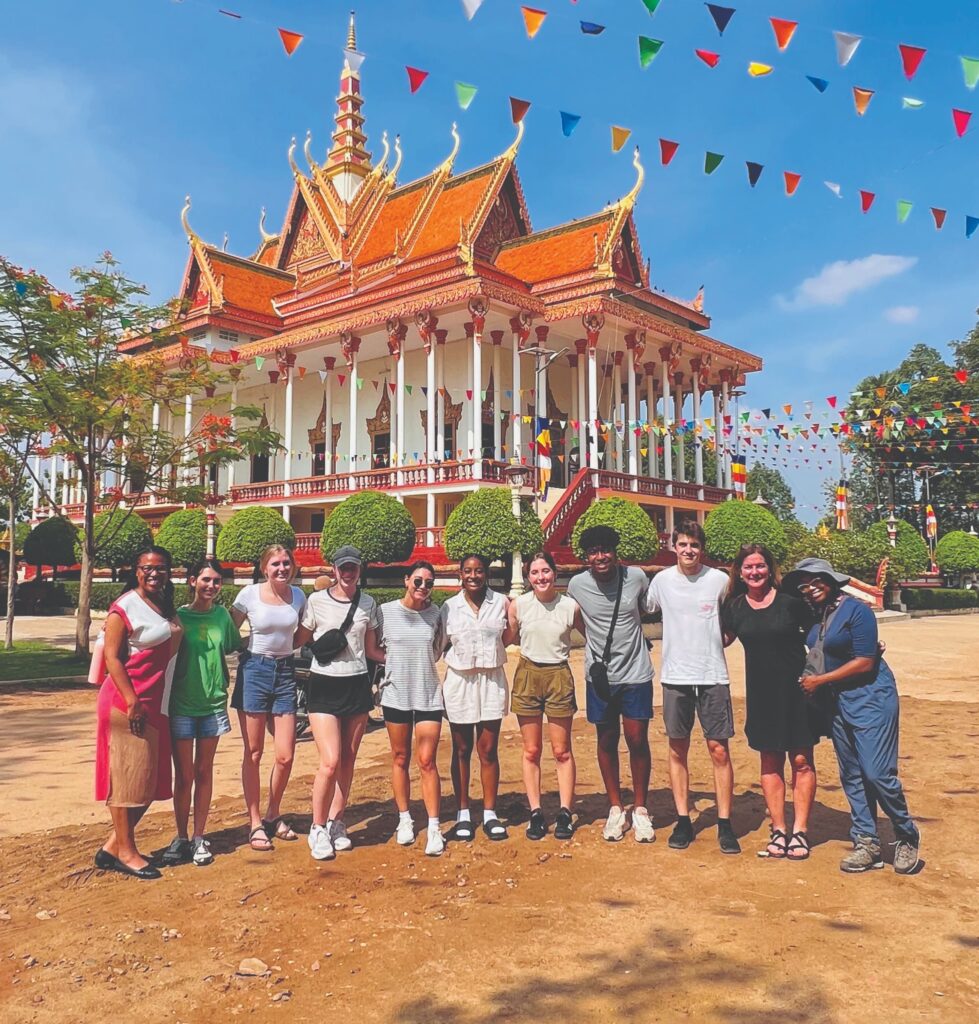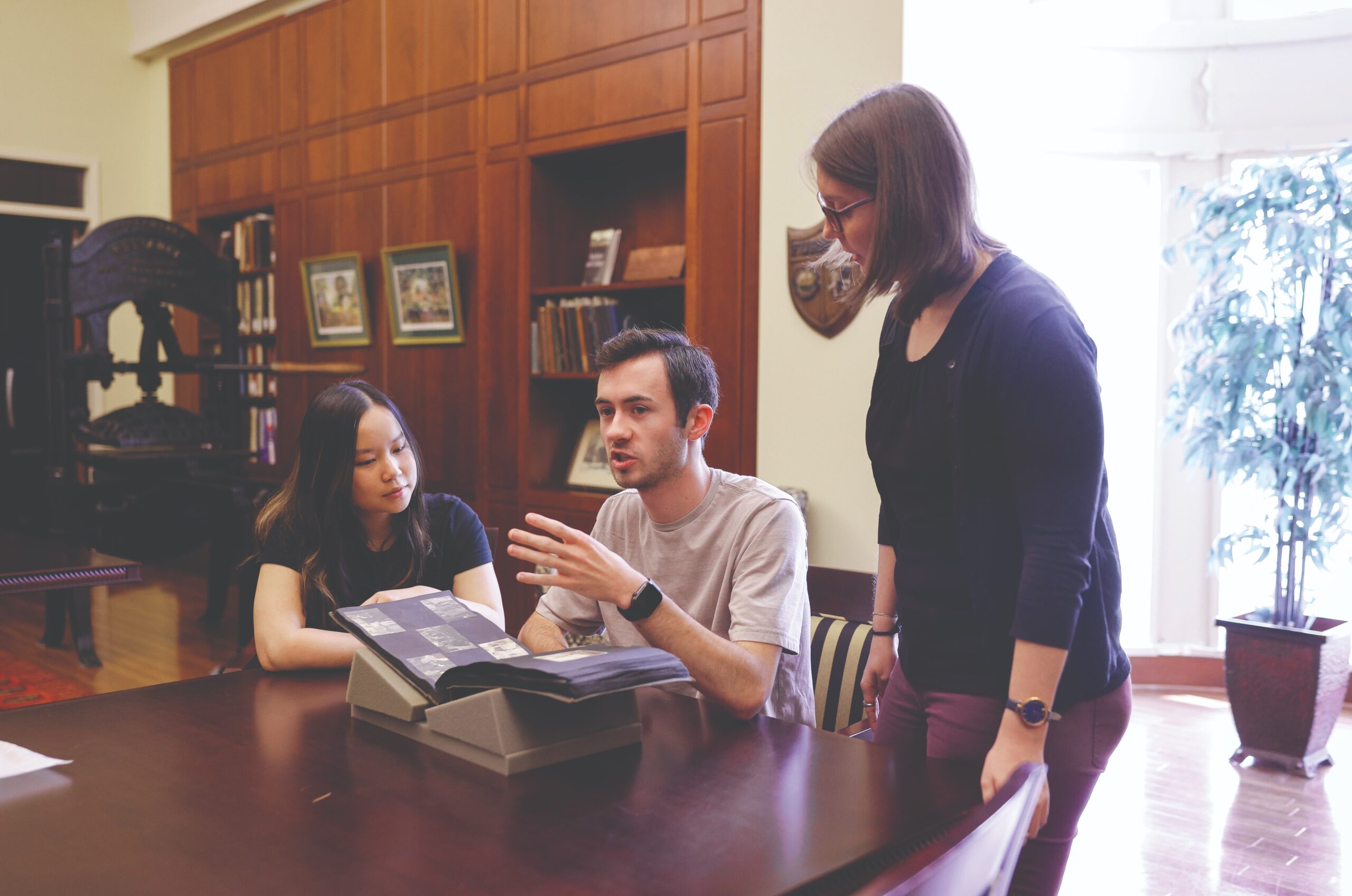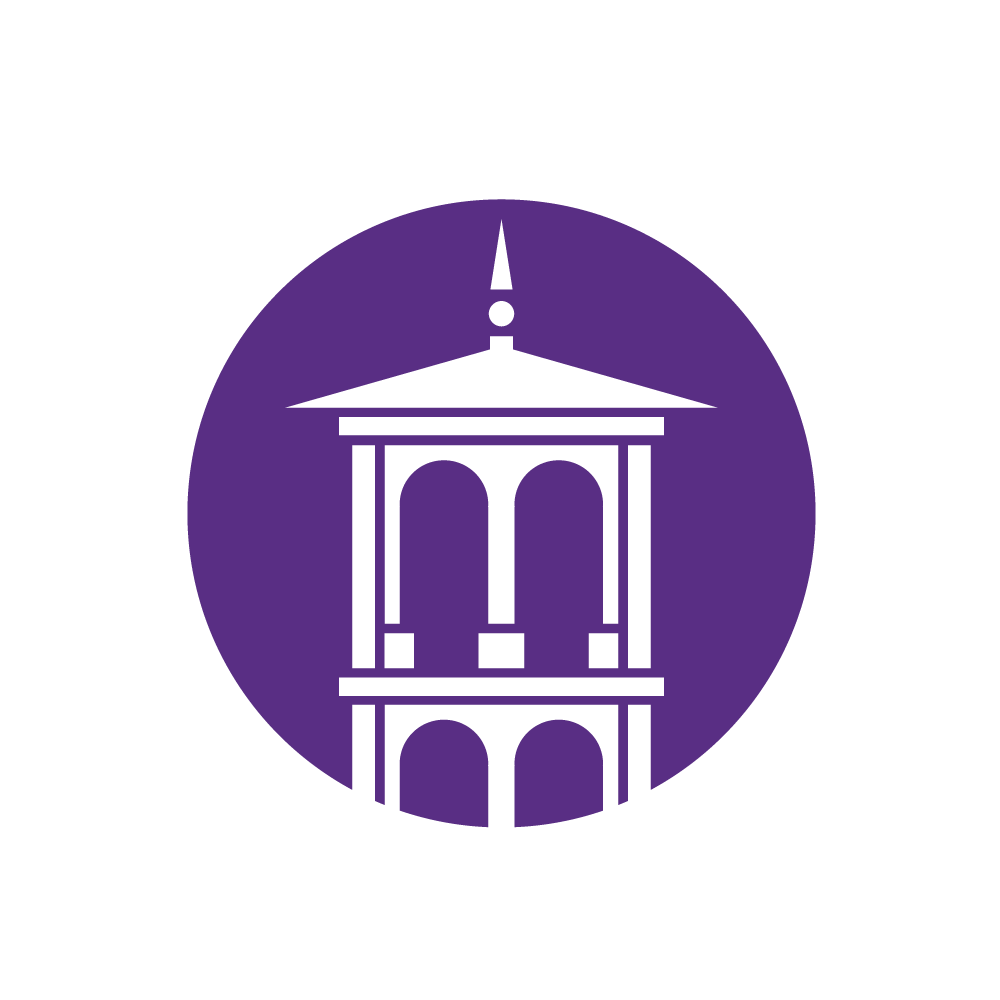THE
FURMAN
ADVANTAGE
For our students, a purposeful life begins to take shape where excellent teaching meets mentoring and advising.
And, when engaged learning is deepened through reflection. This life gathers more definition still when a student’s career exploration is guided by the development of their strengths and interests, a journey that helps them to identify their values.
The Furman Advantage, the university’s four-year framework, is shaped by these purpose-defining elements – mentoring, advising, engaged learning and classroom learning – and it begins with the Pathways Program. This two-year curriculum was offered to all incoming students for the first time this past academic year, following a vote by the faculty in March of 2022.
Belonging, purpose and post-graduation preparation increase affinity, according to Gallup, with belonging identified as the most powerful factor in a student’s likelihood to recommend their school to others.
These elements are strengthened through the four-year pathway, with the Pathways Program curriculum helping to ease students’ transition to college by connecting them to campus resources and then encouraging students to reflect on who they are, what they value and what they want to pursue both in and out of the classroom. This is followed by department-specific programming in years 3 and 4 that help students learn about careers in their discipline and discipline-specific expectations.
Gallup data show that belonging and mattering has increased in first-year students:- 79% of first-year students in Fall 2022 agreed “I feel like I belong,” an increase from 69.4% in Fall 2019.
- 70% of first-year students last fall agreed that “I feel like I matter,” an increase from 59.6% in Fall 2019.
- First-year student data also showed an increase in those who say “I am confident I will graduate from Furman with the knowledge and skills I need to be successful in the job market” from 78.5% in Fall 2019 to 84.3% in Fall 2022.
“Pathways starts students on their journey and sets them up for success. Because it is now a required class for all students, it’s so powerful to know that all first- and second-year students are on the same curriculum.”
Pathways Peer Mentor
New directions for a purposeful path
This past June, Furman announced the creation of five new concentrations for business administration majors: finance, international business, marketing, entrepreneurship and general business administration. The change, available to students this semester, allows them to have more classes outside of the Department of Business and Accounting count as electives in the major.
Students will select a track when they declare a major in business administration, and they can start taking upper-level classes as soon as they have completed the relevant prerequisites. Being able to start upper-level courses earlier gives students more time to prepare for and complete internships, strengthening their career potential and preparation.
A sense of belonging from the very start
The university made significant progress on the construction of the new first-year South Housing residence hall, which will house the Center for Inclusive Communities and include personal and social spaces designed to foster community. The $70 million project, the largest construction project to date, will re-imagine the first-year experience for generations of students. The new residence hall is expected to be completed by Summer 2024.
Immersive inquiry
The Center for Engaged Learning provides all students with the opportunity for high quality engaged learning experiences, enhancing students’ four-year pathways by removing barriers to these opportunities and encouraging critical reflection on them afterward. During Furman Engaged, a daylong celebration of engaged learning held each spring, students present their research, internship, capstone projects, creative works and other projects and learn from their peers about what is possible at Furman.
Our nationally recognized undergraduate program, supported by the Office of Undergraduate Research, is known for its high success rate in students presenting at national conferences, earning national awards, and co-authoring publications in prominent, peer-reviewed journals such as Ecology & Society, The Journal of Sports Analytics and Learning and Memory.
The number of students and faculty who do summer research together has grown steadily since the program began in 1966, and has increased even more since the launch of The Furman Advantage in 2016. In Summer 2023, there were 231 research fellows working with 81 faculty members on topics ranging from the bacterial levels in our vegetables to how parents speak to their children about social inequality.


EMPLOYMENT PLANS
Study away offered by the Rinker Center for Study Away and International Education engages students, enriches their learning and expands their global perspectives while developing highly valued skills such as intercultural communication, foreign languages, adaptability and problem-solving. In the past academic year, 495 students studied away. During the Fall 2022 and Spring 2023 semesters, 106 students embarked on one of our semester-long programs in Australia, Belgium, Denmark, France, Germany, Greece, Italy, Japan, New Zealand, Spain, Sweden and the United Kingdom. During May Experience this year, 301 students took part in one of 20 faculty-led programs. New programs included Iceland: Land of Fire and Ice; Breaking Codes and Winning Wars (London); Global Health in Cambodia; Queer Histories in San Francisco; Art and Empires in Amsterdam, Brussels, London and Paris; and Travel Writing in Spain and Morocco.
The Center for Engaged Learning’s Internship Office helps students secure year-round competitive opportunities designed to advance their academic and professional interests. Through a host of services, such as resume coaching and interview preparation, job shadowing and introductions to key alumni, the office instills in students the professionalism, self-direction, social responsibility and strong work ethic necessary to thrive in their internships and future careers. The office also supported a record number of Freeman Fellows, sending 17 students on internships in Southeast Asia for the summer. The Summer Internship Fellowship, meanwhile, supported 220 students as summer intern fellows by providing financial support for low-or unpaid internships.
| TOP EMPLOYERS OF THE CLASS OF 2022 Accenture Amazon AmeriCorps Apex Systems Arthrex Blackbaud Booz Allen Hamilton Boston Consulting Group Capgemini Children’s National Hospital Deloitte Disney Elliott Davis Ernst & Young Esri Greenville County School District March of Dimes Mercer MUFG Prisma Health Samsung ScanSource ScribeAmerica St. Jude Children’s Research Hospital U.S. Centers for Disease Control and Prevention U.S. Department of Defense Venture for America Walgreens Wells Fargo |
SAMPLING OF GRADUATE SCHOOLS Arizona State University Augusta University Clemson University Coastal Carolina University College of Charleston Emory University Furman University Georgia Institute of Technology Georgia State University Johns Hopkins University Medical University of SC New York University Northeastern University Tulane University University of Alabama University of Cincinnati University of Florida University of Illinois University of Kentucky University of Michigan University of North Carolina University of Pennsylvania University of South Carolina University of Virginia Vanderbilt University Wake Forest University |
OF GRADUATES ARE EMPLOYED, ENROLLED OR PARTICIPATING IN SERVICE (6 months after graduation)
EMPLOYED 55%
CONTINUING EDUCATION 34%
CONTINUING EDUCATION AND EMPLOYED 3%
INTERNSHIP 3%
VOLUNTEER/SERVICE/MILITARY 4%
SEEKING EMPLOYMENT 1%
